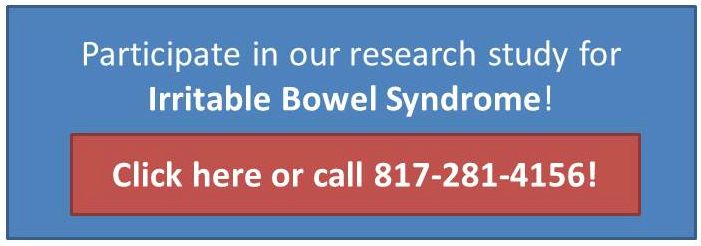 The digestive tract is an intense environment. Acids are churning, muscles are contracting, and bacteria are feasting. If you have irritable bowel syndrome (IBS), the intestines can become an all out warzone. Gas, cramping, and bloating are just the tip of the iceberg!
The digestive tract is an intense environment. Acids are churning, muscles are contracting, and bacteria are feasting. If you have irritable bowel syndrome (IBS), the intestines can become an all out warzone. Gas, cramping, and bloating are just the tip of the iceberg!
These IBS symptoms can be set off by a variety of factors, but one of the most common triggers is food. Surprisingly, food triggers are different for every IBS patient. What causes severe symptoms in one patient may not cause any symptoms in another patient.
So how can you determine exactly which food triggers are affecting you? Doctors and IBS experts say that a systematic approach is best. If you’ve tried other dietary treatments without success, you may want to try an elimination diet. This may sound a bit scary at first, but if you give it a try, you may be able to make major progress in relieving your IBS symptoms.
What Is An Elimination Diet?
This is not a “diet” in the sense that you’re trying to lose weight. This “diet” is simply an eating plan that focuses on avoiding the foods that are most likely to cause IBS symptoms. The general process goes like this: you eliminate potentially offending foods and add them back into your diet one at a time. This way, you can immediately correlate your symptoms with the recently added trigger food.
How Does An IBS Elimination Diet Work?
If you’re suffering from IBS, you shouldn’t undergo an elimination diet without speaking with your doctor first. Once your doctor has given you the go-ahead, you can begin the diet by keeping a food journal for two or three weeks. Don’t change what you’re eating during this time—just methodically record what you’re eating and any symptoms you’re feeling. You may also want to write down any medications you’re taking or any stress, anxiety, or depression that you’re feeling.
After you have a complete food diary, study it and try to find relationships between the food and your symptoms. If certain foods stand out, you should add those triggers to your elimination list. If you don’t see any clear-cut offending foods, start your elimination list with the most common IBS dietary triggers: dairy, wheat/gluten, high fructose corn syrup, eggs, excessive fiber, sorbitol, chocolate, coffee, caffeine, and nuts.
Once you have your list of potential triggers, there are a few different ways to go forward. The International Foundation for Functional Gastrointestinal Disorders (IFFGD) suggests eliminating the foods one at a time for 12 weeks. For example, if you believe coffee is causing your symptoms, stop drinking it for 12 weeks and keep everything else about your diet the same. If your symptoms disappear over the course of 12 weeks, you know that coffee is one of your IBS triggers. If your symptoms are still raging, try eliminating another food for 12 weeks. Keep going until your symptoms are alleviated.
Other experts recommend eliminating all potential triggers for a period of two weeks. After that, you can add foods back into your diet one at a time. For example, if you believe both coffee and wheat were causing your IBS problems, you should stop eating both for two weeks. Then, on day 15, you will drink coffee again for one day. Wait 48 hours and see if you have any symptoms. If you do, that means that coffee is a trigger. If you don’t have symptoms, eat wheat for one day and wait 48 hours to see if any symptoms develop. You will continue adding foods back to your diet until you felt symptoms. When you do feel symptoms, the most recently added food is the culprit.
This Sounds Really Unfair!
The elimination diet isn’t easy and it is unfortunate that you have to deprive yourself of some types of foods. However, sticking with the diet for two weeks or more could really improve your health. It may be difficult now, but staying committed for just 14 days could mean a lifetime of lessened IBS symptoms.
Enjoyed this article? Try reading these as well . . .
Is it Irritable Bowel Syndrome?
Irritable Bowel Syndrome: Does Your Bowel Need A Towel?
Don’t Be a Victim of Your Symptoms: Talking to Your Doctor about IBS
